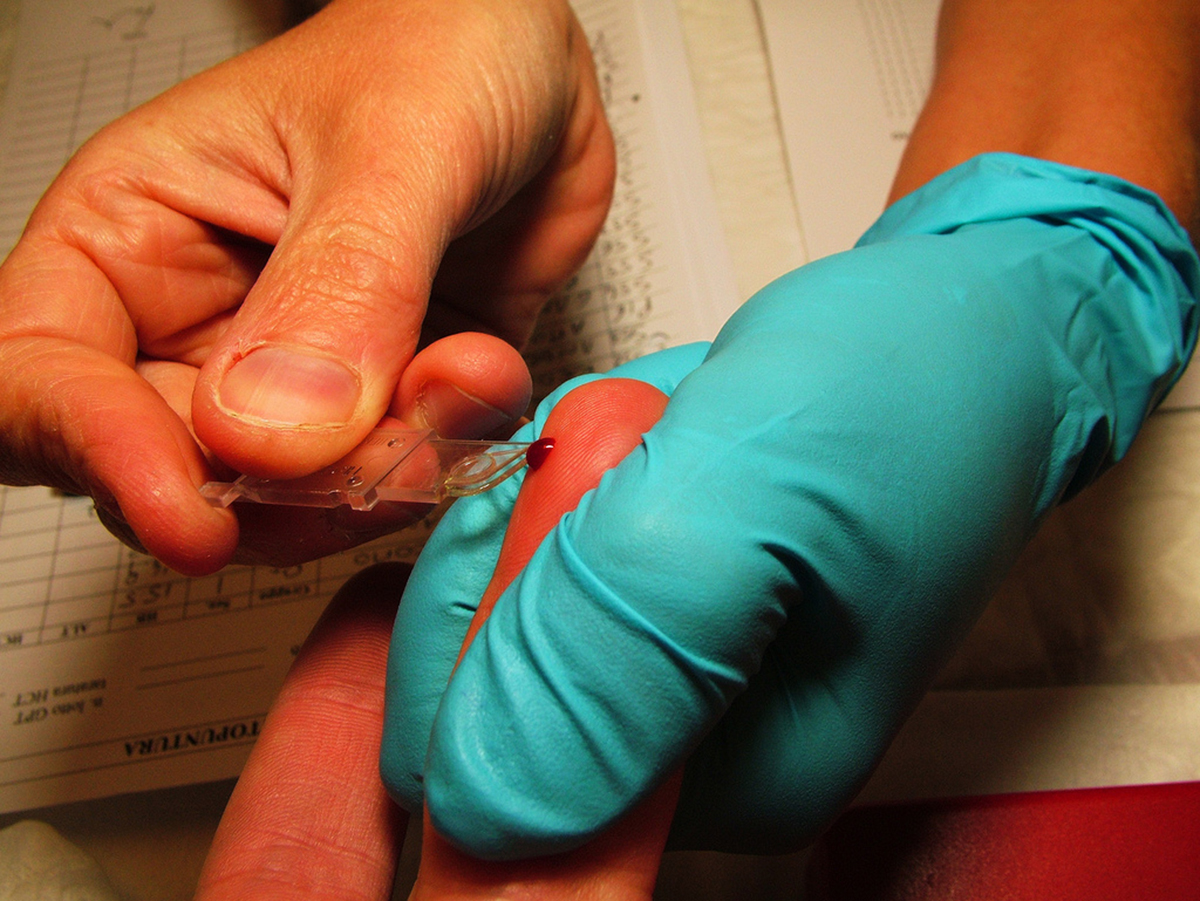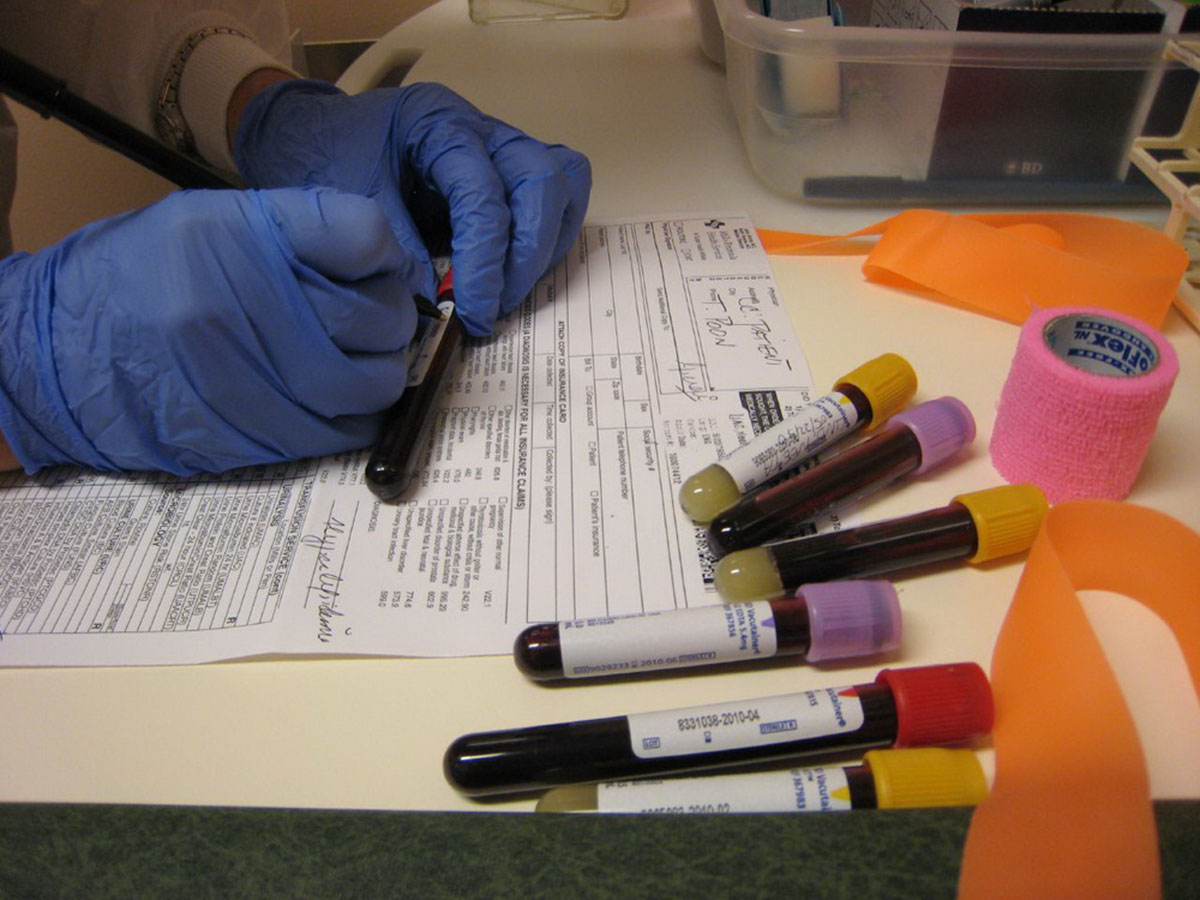Blood will tell...
Sometimes, even during routine check ups, your physician may ask you for a blood sample. When you listen to this, you might experience a bit of fear. But I assure you there is nothing to worry about. Blood tests are one of the most simple, yet informative clinical tests that physicians rely on to evaluate your health state and detect any important changes that may make you sick.

If you're afraid of needles but need to do a blood test, start by openly discussing your fear with the physician or nurse; they're trained to assist and can provide extra care. Distraction is a useful technique; consider listening to music, focusing on an object, or engaging in conversation during the test. You can also practice relaxation methods, like deep breathing or visualization, to ease anxiety.
If the sight of needles or blood triggers your fear, make sure to look away. In some cases, using a topical numbing cream or spray can lessen the sensation of the needle. For those with severe anxiety, it might be beneficial to seek professional help or consider short-term anti-anxiety medication prescribed by a doctor.
Bringing along a trusted friend or family member for support can also make the experience more manageable. Remember, it's a common fear, and healthcare professionals are there to support you through the process.
What you should know before your blood sample is taken
A blood sample is small volume of vein blood that is taken from you by using a needle and a syringe to extract it. Normally, blood is taken from the vein, but for certain tests, arterial blood is required, in which case the procedure is a bit more complicated than the one used to extract a regular blood sample.
Normally, blood samples are taken at the hospital. When you are required to get a blood test, your physician or nurse have to give you special directions that you should follow before having the blood sample taken.
This is to avoid lipids, also known as fats, and other substances from food to interfere with the blood tests, since they are very sensitive.
Vein blood samples are usually taken from the veins located in your arms. Sometimes, it is difficult to identify your veins in this area, so it is also possible to get samples from the veins located near your wrist and in the back of your hand. Do not panic. This almost never happens and it is more common in people that have been subjected to many arm punctures due to sickness or other conditions. In babies, blood samples can also be taken from the heel.
The procedure
Before taking your blood sample, your physician or nurse must clean the area to puncture by using a cotton with alcohol, and new sterile needles and syringes must be used every time, during each extraction.
Read More: Mother's Blood Test at Seven Weeks Reveals Baby's Sex
After this, the needle is removed and a cotton pad is put on and pressured over the puncture site, to help in coagulation and avoid bruising.
Blood Tests: What They Can Tell
After the blood extraction, your blood will then be stored at specific conditions before it is transported to the lab, where it will be analyzed according to your physician's requirements. Blood samples can be stored, but they must be analyzed on the same day that they were taken because some of the substances that need to be identified can degrade over time.

Your health state in a few drops of red fluid
I'm sure you are now wondering what kind of tests are performed to your blood.
What kind of substances can be identified in a blood sample, and what do they tell?In a routine check up, you can see, first of all, how your blood cells are doing. If they are in the right amount and have the right size. This will tell your physician if you have any blood related condition, such as anaemia, coagulation problems or even blood cancer.
Apart from blood cells, it is also possible to know if you have nutritional deficiencies through a blood sample. It is easy to detect and quantify the levels of vitamins and minerals in your blood, being some of the most important the iron, calcium and zinc levels.
The amount of lipids, such as cholesterol and triglycerides are also determined in blood tests. These are important because, when over the normal range, they can be quite dangerous and predispose the patient to heart disease and stroke, as well as metabolic diseases like diabetes. This last condition is also detected by analyzing the quantity of blood sugar in the sample.
Other types of tests
Hormonal levels, both in men and women, and some other markers of disease, are also present in blood and are determined in a blood sample when the physician requires it, as they are usually not routine tests. For example, kidney problems are accompanied by the presence of certain substances in blood, as well as in urine. When your kidneys are not functioning well, they tend to fail in filtrating certain molecules into the urine, accumulating in the blood. The most common are urea and creatinine.
Another example is liver disease. When this organ is damaged or not functioning well, it tends to release substances that indicate liver failure. These substances can also be detected in your blood, and will tell your doctor that your liver is not in the best conditions.
It is not necessary to get a large volume of blood for some tests.
Read More: Blood Test for Down's syndrome Prediction Developed
Now, you know what's done with your blood after the nurse pinches you with a needle and gets a sample of this dark red fluid. The next time you get a blood test, remember how important it is to follow your doctors instructions before, during and after your blood sample is taken.
- Photo courtesy of Michele M. F. by Flickr : www.flickr.com/photos/e-coli/2981898402/
- Photo courtesy of Neeta Lind by Flickr : www.flickr.com/photos/neeta_lind/3572379084/

